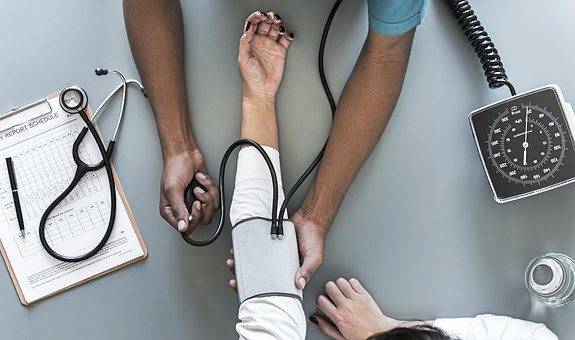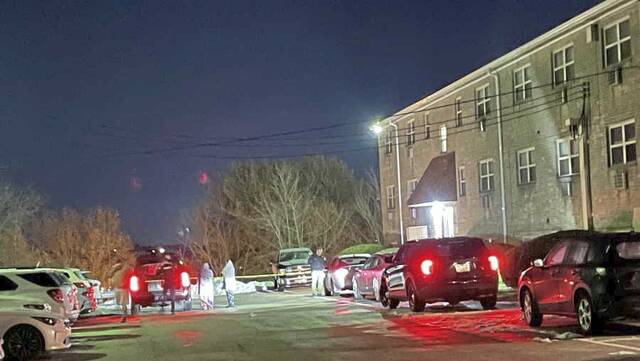Hospitals across the region that are looking to recover revenue they lost while preparing to meet a surge in covid-19 cases say they need more help and are seeking a more equitable piece of the pie as the federal government rolls out the remaining $70 billion of a $100 billion health care allocation from the $2.2 trillion coronavirus CARES Act.
Many hospital and health system officials, as well as Pennsylvania’s Democratic congressional delegation, say the first round of funding was disappointing.
The formula used to allocate coronavirus relief in last week’s $30 billion rollout of hospital funding dramatically shorted Pennsylvania institutions, Democratic lawmakers charged Thursday in a letter to federal officials.
In a letter to Health and Human Services Secretary Alex Azar and Center for Medicare and Medicaid Administrator Seema Verma, the Democrats asserted that the money distributed to states based on last year’s Medicare billing failed to consider that many Pennsylvanians don’t participate in traditional Medicare, opting instead for new Advantage plans.
It was signed by Sen. Bob Casey, D-Scranton and nine Democratic House members, among them Mike Doyle D-Forest Hills and Conor Lamb, D-Mt. Lebanon.
They said that oversight, coupled with a failure to consider the number of covid-19 cases in each state, led to gross inequities in the first round of hospital aid.
A Kaiser Health Network analysis of awards in numbers provided by the U.S. House Ways and Means Committee reflected dramatic differences from state to state.
In Pennsylvania, for instance, hospitals received about $68,000 for every covid-19 patient treated. On average, hospitals received about $175,000 per reported covid-19 case.
But figures ranged from just under $12,000 per case in New York where hospitals have battled a dramatic surge in cases to as much as $470,000 per patient in West Virginia, where few cases have been reported.
The Pennsylvania lawmakers urged federal officials to act quickly to address such issues, as the Hospital and Health System Association of Pennsylvania warned that hospitals across the state are losing $1.5 billion a month due to coronavirus costs.
While the Pennsylvania Democrats lobbied for stronger relief for hospitals across the state, U.S. Sen. Pat Toomey, R-Lehigh Valley, who was appointed Thursday to a bipartisan congressional task force charged with restarting the economy, looked at the numbers from a different perspective.
In press release announcing his appointment, Toomey said the fact that Pennsylvania’s hospital capacity has not been overburdened by the pandemic suggests social distancing is working and it is time to begin reopening some sectors of the economy.
Nonetheless, local hospital officials, however, say the cost of preparing for that challenge has left them struggling.
Thomas Albanesi, chief financial officer for Excela Health, the Westmoreland County health system that operates hospitals in Greensburg, Latrobe and Mt. Pleasant commended the lawmakers who took their case to the federal government.
He said Excela believes the $25,000-per-bed formula the American Hospital Association recommended for CARES Act allocations would have been more equitable to hospitals across the country.
“The financial losses being borne by all western Pennsylvania health systems during the pandemic, including Excela Health, are daunting,” Albanesi said. “We’ve postponed most of the procedures and tests that generate revenue to fund vital services and expenses that are at the core of our operations.
“For instance, our surgical volumes in April are down 79% from (last) April. The CARES Act funding we’ve received so far is just a fraction of the operating losses we will incur during this pandemic. “
Albanesi said health insurers have seen their expenses decline during the pandemic and suggested they might be yet another source to help hospitals underwrite their losses.
Like Excela, officials at Allegheny Health Network said they have made significant investments to prepare for a surge of virus patients.
“We are closely monitoring those costs as well as forgone revenues related to the pandemic — decreasing volumes, fewer physician office visits, postponed non-emergent procedures etc.,” AHN spokesman Dan Laurent said.
Laurent said AHN received $35.6 million this week in its first round of CARES Act funding, but is exploring additional relief funding through the CARES Act and FEMA.








